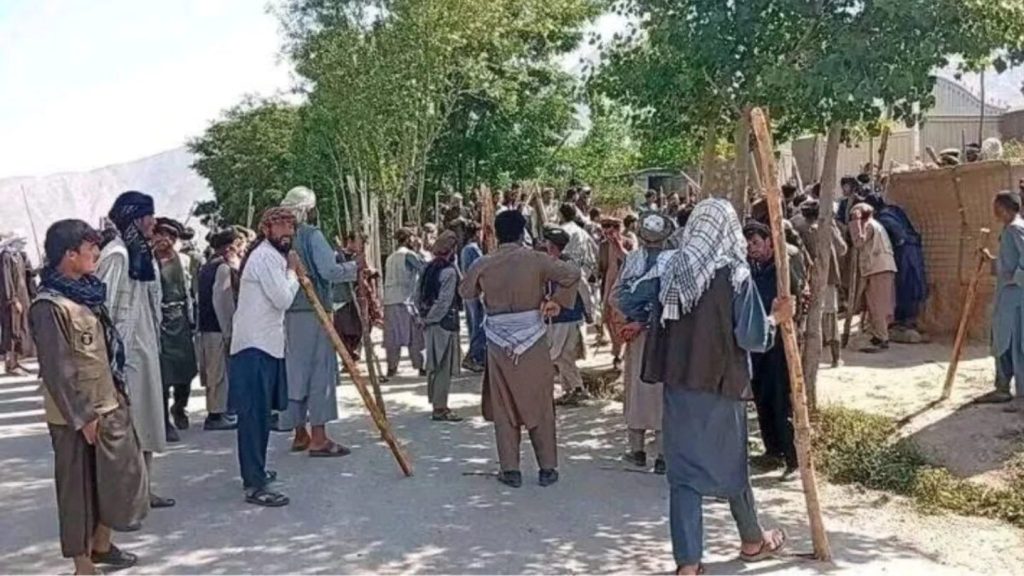In northern Afghanistan’s Badakhshan province, a Taliban crackdown has sparked fear and unrest in the Khash district. The hardline group has arrested several of its own officials after violent protests erupted over poppy field destruction.
According to local sources, three senior Taliban members were among the detained. They include Gul Ahmad Shahin, who served as the police chief in Khash. The others are Qari Nawid, head of criminal investigations, and Qari Wajid, a local commander. All three reportedly refused to use force against angry demonstrators. They are accused of showing sympathy toward local residents.
The Taliban crackdown did not stop there. The group also carried out widespread search operations across the district. Civilians fled into nearby mountains, fearing arrest or abuse. The situation grew worse when more locals were taken into custody. Among them was a respected cleric, Mawlawi Roh-ul-Bayan. He allegedly played a role in organizing the protests.
All those detained—including Taliban officials and civilians—were transferred to Fayzabad, the provincial capital. So far, the group’s local leadership has not issued any formal statement about these arrests.
The unrest began earlier this week when Taliban fighters attempted to destroy poppy fields in the region. The move triggered intense backlash from farmers and residents. Protests quickly turned violent. At least eight people lost their lives. Dozens more were wounded, according to eyewitnesses and hospital staff.
On Thursday, the Taliban crackdown intensified. Reports suggest that at least 37 more people were detained in connection with the protests. The main market in Khash remains closed. Taliban fighters are accused of harassing locals. Fear has gripped the district. Many residents are staying indoors, worried about arbitrary arrests.
Heavy patrols continue. The Taliban suppression in Khash shows the growing divide between the group and communities in northern Afghanistan. Locals are growing resentful, especially over poppy eradication efforts that threaten their survival.
This recent wave of repression highlights the ongoing tension between the Taliban regime and ordinary Afghans. Their heavy-handed policies, especially in rural areas, are creating deep fractures. As this forceful response unfolds, the gap between people and rulers only seems to widen.


